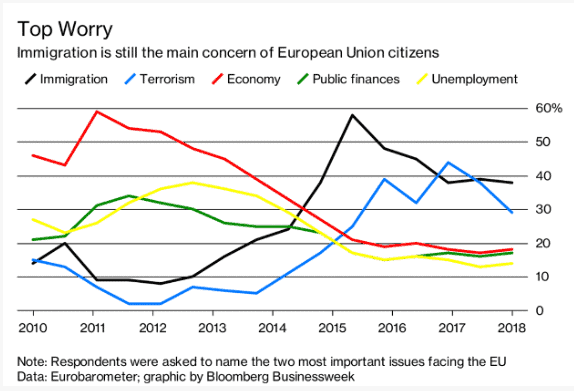Emmanuel Macron Has Not Killed French Populism
- Post AuthorBy Henry Wolff
- Post DateMon Apr 25 2022
The results of the French election showed a resounding Macron victory. {snip} Though Macron suffered from incumbency and a weak economy, he benefited from the fact that many of the issues that favour national populism were in abeyance.
For instance, research shows that when immigration is a high-ranking priority for voters, national populist parties benefit. On issues where people trust technocratic expertise, such as foreign policy, combatting Covid or managing the economy, fewer voters look to populists. These issues tend not to be prioritised by populist voters, nor do they predict populist voting. Populists attempting to seize on the Covid issue have fallen flat.
As the figure below shows, when the economy is performing well and foreign policy questions or Covid are not dominating the headlines, technocratic mainstream parties are less advantaged and there is more room for the rise of cultural issues that favour Right-wing populism. Prior to the populist moment of 2014-17 in Europe and America, economic questions had declined in importance among voters.
{snip}
The deeper structural drivers of national populism, whether with Trump, Brexit or Le Pen, lie in ethnic majority discomfort with the scale and pace of cultural change, supplemented by concerns over the integration of Muslims (though this is not the main factor). Culture war questions over the boundaries of free speech and content of national history are adding another layer to political contestation in American politics, and this could also begin to affect European politics.
{snip}
What is more difficult to determine is whether the electoral ceiling for the populist Right will continue to rise as Europe’s ethnic majority declines, or whether cultural and psychological Left-liberalism, material interests or generational value change set a firm upper bound to populist success.
- Post TagsElections, France, Race and Politics
